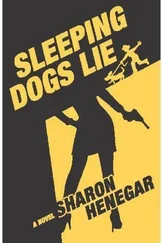1 ...6 7 8 10 11 12 ...15 Gerry allowed that the burglar could have switched specialties, wintered in a warmer clime or been jailed on an unrelated charge. “Whatever caused the lull, he’s back. The Herald isn’t happy about keeping the story low profile, but some influential victims and real estate developers don’t want their neighborhoods depicted as crime scenes.”
“God forbid.” Jack snorted. “They may as well leave out cookies and milk for this dude. A little snack for bad ol’ anti-Claus.”
“Residential watch groups were alerted in early June. Private security and police patrols in probable target zones have been increased.”
“Uh-huh.” Jack’s finger tapped the prior Sunday’s date on the most recent burglary complaint. “Fairly obvious, what a big friggin’ bite that’s taking out of crime.”
“I want him caught, McPhee.”
Jack looked up. The tone and content of Gerry’s statement weren’t particularly open to interpretation. “You want me to catch a burglar?”
The insurance broker leaned forward and braced his elbows on the desk. “I hope your schedule’s clear enough, or can be cleared to devote full-time to this.”
There were some less than lucrative jobs pending on Jack’s calendar. Otherwise, if the schedule had been any clearer, he’d be applying for a shopping-cart jockey’s job at the local Sav-A-Lot.
National Federated’s retainer would be commensurate with exclusivity, but a scratching sensation behind Jack’s sternum hinted that Gerry Abramson was holding something back.
Perhaps an untranscribed chat with a crime-unit investigator who suspected this Calendar Burglar carried an AK-47 in his pillowcase. Most housebreakers aren’t armed; county jail or prison-time on a theft rap is measured in single-to double-digit months. Add a weapons charge and it’s usually sayonara for a long stretch.
But kill somebody with it—say, the P.I. on your case—and it’s twenty-five to life. A punishment befitting the crime, Jack thought, except for me still being dead.
“The newspaper may be downplaying the story,” he said, “but this victims list must have lit a bonfire under the police chief’s butt.”
Gerry nodded. “It hasn’t slowed, much less stopped these thefts. If the Calendar Burglar isn’t arrested before Labor Day weekend, it stands to reason, he’ll disappear again.”
And bloom like jonquils along a fence row next May. “I understand the reasoning, Gerry. To be honest, just thinking about it has my motor running, and the fee for services could be a beaut.”
Jack laid the paperwork on the desk, then sat back and crossed a leg on his knee. “What I don’t get is why you think I can make a tinker’s damn worth of difference.”
“Fresh eyes. Fresh perspective.” His gesture relayed “If I’m footing the bill, what’s the problem?”
The response was credible, even logical, but a tad too quick. Jack thought back to Wes’s earlier remark about advising Gerry to contact McPhee Investigations shortly after the burglaries recommenced. Then the polite bum’s rush Wes received when he tried to invite himself to the powwow.
“You think Shapiro’s the Calendar Burglar,” Jack said. “He covered himself by concentrating on other insurers’ clients, then either greed or smarts told him he’d better dip into the home well, or somebody’d get wise.”
Gerry’s expression slackened. Skin folds lapping his eyelids retracted, as though an instant blepharoplasty had been performed. Chuckles escalated to a belly laugh. “Wait’ll I tell Letha. Picturing Wes tiptoeing around like Cary Grant in that old cat burglar movie will be stuck in our heads for who knows how long.”
Great. Now that he mentioned it, the image implanted itself in Jack’s mind. Sort of like Don Knotts resurrected for a remake. No, not quite that big a departure. Jerry Stiller, maybe. Or What’s-his-name—that average Joe born to play average Joes.
“It’s as simple as this,” Gerry said. “I’m an independent insurance agent. A hub in a wheel with multiple spokes. When loss claims hike, instead of one provider’s boot on my neck, it’s a centipede.” He blew out a breath. “I shouldn’t have to tell you, I don’t need the stress.”
A half hour later, Jack left the building with an armload of files, a retainer check and no idea how he’d earn it.
Single-story duplexes are usually long rectangles with mirror-reverse floorplans. By the county assessor’s definition, two contiguous residential units separated by a foot-thick rock firewall were patio homes. Very la-di-da, in Dina’s opinion, but such was government work. Whether duplex or patio home, the bisected building wasn’t rectangular, either, but an L painted a cruddy shade of gray.
The units shared a three-quarter pie-shaped front yard, a sweetgum tree and views of an adjacent redbrick warehouse, but respective tenants seldom saw each other. The jackknifed design had the neighbors facing north at the corner of Rosedale Court and Lambert Avenue; the Wexlers’ side pointed due east on Lambert at its intersection with Spring Street.
Visitors directed to the corner of Lambert and Rosedale would idle at the curb, look from one unit to the other and mutter “Eeny, meeny, miney.” Occasionally they chose the right “mo.” A few hit the gas and drove away in a huff. Those who rang the Wexlers’ doorbell in error kept them apprised of the current neighbors’ last name.
As Dina cruised up Lambert Avenue at 1:15 a.m., the Rosedale side’s windows were dark. Lights blazed from Casa Wexler as if a party was in progress. Where Harriet’s energy-conservation policy once consisted of “Flip off that switch when you leave a room. You think I own the electric company?”, evidently, she now thought her daughter did.
Dina pulled past the mailbox, shifted the Beetle into Reverse and backed into the driveway. The engine hacked and sputtered. Mechanical bronchitis was typical of vehicles with a couple of hundred thousand miles on their odometers.
Someday she’d have the money to restore it to its original…well, glory was a bit highfalutin for an ancient VW. She’d settle for a new milky-cocoa paint job and straightening the Val Kilmer sneer in the rear bumper.
The Beetle was as short in the chassis as she was, but the single garage wasn’t deep enough to squeeze between the wall and the car to open the front-end trunk. She shifted into Neutral, yanked on the emergency brake, then slumped in the seat. She was just too pooped to muscle up the garage door, back in the Bug, unload her stuff, then jump for the rope tied to the door’s cross brace to pull it down again.
“Someday number two,” she said. “I’ll have a garage with an electric opener and shutter.”
Leaving the Beetle to the elements, she reached into the trunk and wrestled with the magnetic Luigi’s Chicago-Style Pizza sign earlier peeled off the driver’s-side door. Her hobo bag slung over one shoulder counterbalanced the canvas tote on the other. Quietly, she closed the trunk, then relocked it.
The duplex’s front door swung open the moment the key was inserted. Dina groaned in frustration. Sirens and extended commercial breaks often lured her mother from the world that was her chair to survey the larger, outside one. When the TV program resumed, or no disaster was visible beyond the stoop, she’d shut the door and call it good.
Harriet Wexler could not—or would not—get it through her head that the day was long gone when locked doors and drawn curtains meant you had something to hide.
Inside, an infomercial hawked its wares to an unoccupied glider rocker. The habit of leaving on the TV “for company” impelled silent prayers that her mother hadn’t toddled off hours ago to the bathroom and collapsed in a heap on the floor.
Читать дальше












